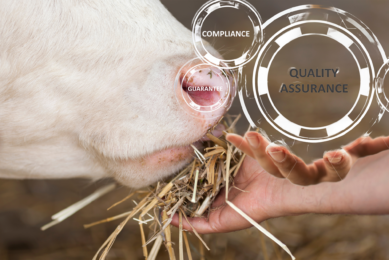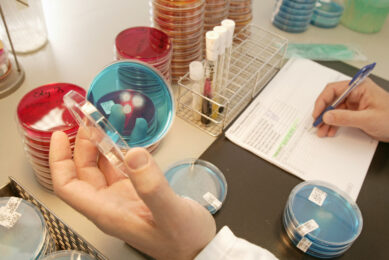Herbal therapy for farm animals
Natural alternatives to growth-promoting antibiotics in livestock feed may soon be on the menu for pigs, poultry and fish in Europe, thanks to research conducted by REPLACE, an EU-funded project.
Antibiotics have been widely used in animal production for decades worldwide.
Added in low doses to the feed of farm animals, they can improve livestock
growth performance.
By promoting better condition and vitality, reducing
death rates and reducing the need for therapeutic treatment, antibiotic growth
promoters helped to keep production costs competitive.
Although
antibiotics were never used to the same extent in Europe as in the US, their ban
has had a varying impact on livestock production, says John Wallace of the
Rowett Research Institute in the UK, coordinator of the REPLACE project (replacing
antibiotics).
Disadvantage of ban
Dr Wallace believes
that the removal of growth-promoting antibiotics has placed some livestock
producers in Europe at a competitive disadvantage overall, since other countries
such as the US have no restrictions on their use.
|
So what is the
alternative? Funded under the ‘Food quality and safety’ programme of the Sixth
Framework Programme (FP6), REPLACE is looking into the use of plants
such as herbs, plant extracts including essential oils and other materials as
safe alternatives to these feed antimicrobials.
All of the samples are of
plants or extracts that are either indigenous to Europe or that can be grown
here.
The candidates selected by the project come from some 500 samples
of plant material which were collected during the Rumen-up project in FP5, to
decrease methane and nitrogenous emissions from ruminants and to alleviate
nutritional stress.
‘Methane is not only bad for the environment, it is
also bad for the animals to be losing an important source of energy,’ Wallace
explained.
In FP6, the samples were tested this time for use on pigs,
poultry and fish for their potential to control infections from and immunity to
E. coli and other parasites, as well as for their impact on food safety and feed
efficiency.
Three promising plants
The project consortium has
identified three promising candidates for which it is filing patent
applications.
One candidate, which has been used in traditional herbal
medicine, was found to be particularly effective in the control of diarrhoea
among piglets and to improve feed efficiency in poultry.
A second
candidate is from an anthelmintic plant that helps control parasites in the guts
of ruminants, while a final possible alternative is an essential oil with an
application in aquaculture.
Dr Wallace believes that all three candidates
are commercially viable. ‘First though, we will have to prove their efficiency
and safety,’ he noted.











